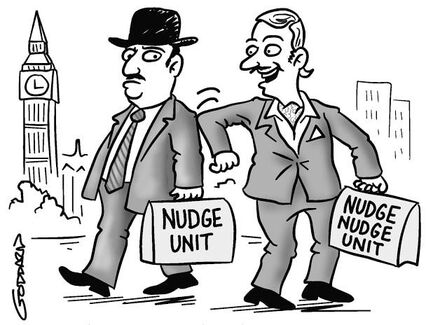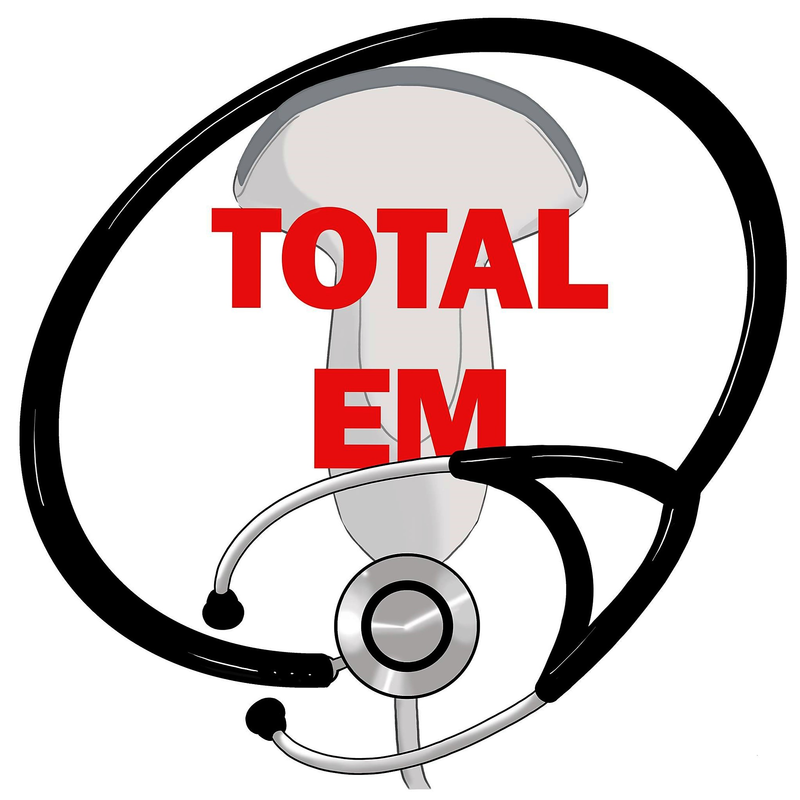|
Patrick Bafuma is back to provide another EM ID special, this time with Dr. Valerie Vaughn. She is internal medicine trained and a hospitalist with a special interest in infectious disease. The concept of asymptomatic bacteriuria has been discussed before with with Podcast #158, but this time Dr. Vaughn introduces the idea of nudges and how it can help use reduce our antibiotic use.
If you're a behavioral economist or listen to Freakonomics, you may have heard of the concept of the nudge, but for the rest of we have Dr. Vaughn to explain how the Jedi mind trick known as the nudge can help us improve our care. In this case, specifically on asymptomatic bacteriuria (ASB).
Make sure to listen to the podcast for all of the pearls, but here are some highlights. What is a nudge? Dr. Vaughn likes the one most that comes from Richard Thaler who won the Nobel prize in economics in 2017. He defined a nudge as, "any aspect of the choice architecture that alters people’s behavior in a predictable way without forbidding any options or significantly changing their economic incentives.” What that means in real-life terms, is that a nudge is anything that purposefully sets up pressures that influence people to make one choice over another. Specifically, this is different than say having financial bonuses or penalty for doing something. What are some examples? One is making the preferred option the “default” option. For example, if you want more people to choose to be organ donors you can make organ donation the default option when people sign up for their drivers licenses. They are still able to opt out if they’d like (thereby maintaining their autonomy), but making something the default is makes it the easier option and implies that it’s the normal choice which adds an element of social pressure. Other options are arranging choices to be harder or easier. For example, if it’s easier to buy something (such as one click purchasing) you are more likely to do it. In medicine, you often see this done with the electronic health records. Making the generic the default choice can reduce costs. Making it harder to order MRIs versus CTs may make physicians more likely to order CTs in situations where they do not strongly feel a patient needs to have the MRI. That last point is key. Nudges do not change the minds of people who believe strongly (against organ donation or that the MRI is the better test), but they profoundly influence people either with no opinion or very weak opinions which turns out to be most of us in many situations. How has this been applied to ASB? One simple option is removing urine cultures from order sets. The presence of urine culture in the long list of possible tests to order makes it really easy to order it, even if you were not necessarily planning on ordering it when you went in to write orders. Only people who really want the culture will take the time to go looking for it. Studies have shown this can reduce culturing by half. Another, even more powerful nudge, is hiding culture results. Jerome Leis out of the University of Toronto performed a study in which, rather than reporting the results of urine cultures, they instead replaced the report out with the phrase: “The majority of positive urine cultures from inpatients without an indwelling urinary catheter represent asymptomatic bacteriuria. If you strongly suspect that your patient has developed a urinary tract infection, please call the microbiology laboratory.” Rates of antibiotic treatment for asymptomatic bacteriuria fell from 48% to 12% without increasing the number of untreated UTIs. People that actually wanted the result called. Those who did not actually think the patient was infected did not call. There are many more examples but listen to the podcast to find them and other pearls. Also, make sure to check out a project that Dr. Vaughn has been helping, the Michigan Hospital Medicine Safety Consortium. There is a lot of great information there and it is worth checking out. Let us know what you think by giving us feedback here in the comments section or contacting us on Twitter or Facebook. Remember to look us up on Libsyn and on iTunes. If you have any questions you can also comment below, email at [email protected], or send a message from the page. We hope to talk to everyone again soon. Until then, continue to provide total care everywhere.
0 Comments
Leave a Reply. |
Libsyn and iTunesWe are now on Libsyn and iTunes for your listening pleasure! Archives
August 2022
Categories |
||||||


 RSS Feed
RSS Feed